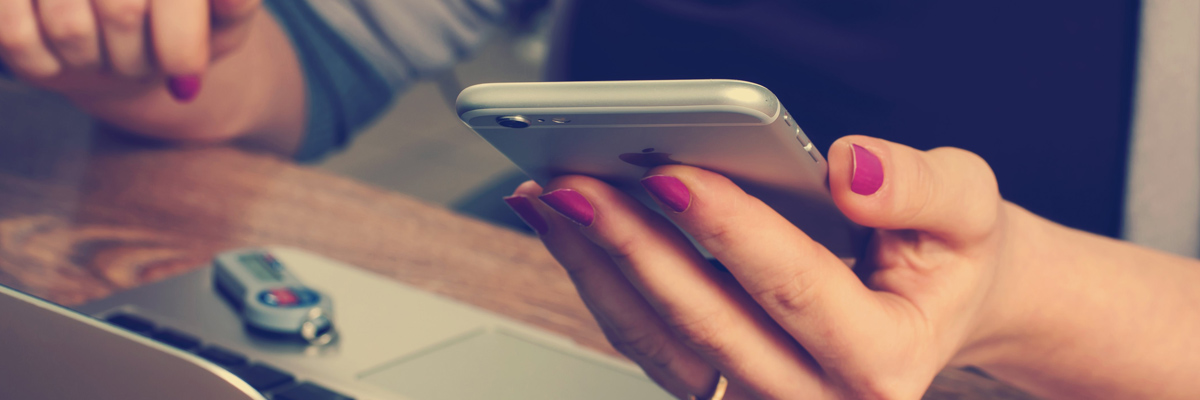In your pocket, you have a device that can access all of the world’s information. You can connect with any of your friends, family or colleagues. It entertains you while you pay for groceries. You can enter a virtual world with a cardboard cutout. And all this is killing your productivity.
Originally published on the Art Of Meaningful Work podcast. Listen to it below and subscribe on iTunes or Stitcher.
A few months ago I gave a talk on digital marketing trends, at a digital marketing conference in Calgary. We talked about marketing automation, working with influencers, and artificial intelligence. Then things took a darker turn, into the phenomenon of smartphone addiction and how it affects our lives.
By now, there are numerous studies on the topic of digital distraction, and specifically how that applies to phones. I found this one particularly interesting. It is from the August 2015 issue of the Journal of Experimental Psychology.
Researchers studied 212 undergraduate students, and exposed them to different phone-based stimuli and notifications, and here are the findings:
“It is well documented that interacting with a mobile phone is associated with poorer performance on concurrently performed tasks because limited attentional resources must be shared between tasks. However, mobile phones generate auditory or tactile notifications to alert users of incoming calls and messages. Although these notifications are generally short in duration, they can prompt task-irrelevant thoughts, or mind wandering, which has been shown to damage task performance. We found that cellular phone notifications alone significantly disrupted performance on an attention-demanding task, even when participants did not directly interact with a mobile device during the task. The magnitude of observed distraction effects was comparable in magnitude to those seen when users actively used a mobile phone, either for voice calls or text messaging.”
Derailed by a notification
What this means for us, regular plebs, is that focus, attention, and concentration are significantly impacted by the presence of a phone. I’ll share a personal example, and you can let me know if you can identify with it.
While I was reading the study, and sketching out an outline for a podcast episode, I kept receiving messages from my wife who was away with my daughter. She would send me a photo or a short video of what they were doing. And I couldn’t resist looking at it. I would see the screen light up out of the corner of my eye, and as much zen-monk focus I like to think I have, I would relent and look at it.
Add to that a quick reply, and the next thing you know, I’m back to the computer. But now… I am looking at pictures of what Kimberly looks like (it’s beautiful, by the way). Then, a quick glance over to Twitter and LinkedIn.
Next thing you know, it’s almost 30 minutes later from the time the notification set off. It is also a loss of productive time, very much in line with what the researchers found.
I just happened to be sitting down at my desk during this time. However, with 3G, LTE, and large data plans available to anyone with a cell phone as well as plentiful WiFi hotspots, this easily applies when you are out of the office, going for a walk, at the gym, or listening to a podcast.
A simple notification can derail whatever task you are focusing on, effectively killing your productivity.
Addicted to distraction
We are not even touching on the addiction element of all this. Apps, websites, games and social media networks are leveraging some very sophisticated methodologies, and smart people from psychology, neuroscience, and biometrics in order to create hooks, or addictive behaviours to their products.
That is why you will often see people thumbing through their phones without being prompted by any notifications. They are “checking”. Looking for social signals from their networks, about something they may have posted. They’re hooked on the idea of social connection through the device. This is something we will discuss another time, but here is a great article to get you started.
Battle distraction with habit change
What is the takeaway?
You have a black rectangle in your pocket, with access to all of the world’s information, your friends, family and colleagues. It gives you news and celebrity gossip. It lets you collect Pokemon while walking. All of that is amazing. And all of that is engineered to capture a slice of your attention.
Each slice of attention that is taken away from your important work – tasks that require focus and concentrated effort – affects your productive output negatively.
To solve this problem requires behavioural and habitual change. To get started, put your phone on airplane mode when you are working on something important. Even when you need a small mental break in order to absorb and process your thoughts. Your brain needs rest in order to replenish attention, exercise focus, and generate creative juices.
See if you can leave your home without it. Go for a walk phone-free. See how that feels. Trust me, for those 30, 40, or 60 minutes – the world won’t blow up because you weren’t able to check Twitter.
